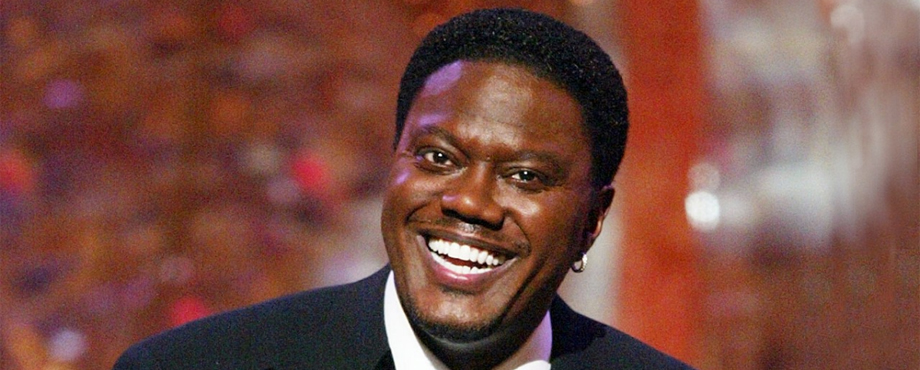
Welcome to Doctors’ Notes, our newest contribution from Urban Health correspondents and husband and wife physicians Dr. Rob and Dr. Karla Robinson. The dynamic duo will be fielding questions about health, as it relates to African Americans. Please feel free to send them questions via [email protected]. We promise to keep it anonymous.
As one of the Kings of Comedy, Bernie Mac is heralded as one of the greatest comedians of all time. While he was bringing in the laughs, many didn’t know he was battling the chronic disease sarcoidosis, which leads to inflammation and affects the body’s organs. While his death in August 2008 at the age of 50 seemed untimely and he is sorely missed, his legacy lives on not only through his films, shows, and stand-up routines, but also through The Bernie Mac Foundation.
We talked to his daughter, Je’Niece McCullough, for Sarcoidosis Awareness Month to find out more information on their family’s experience of living with the disease, The Bernie Mac Foundation, and their determination to increase the awareness of sarcoidosis in the Black community.
JET: What was it like growing up with one of the greatest comedians to have ever lived as your dad? I bet there was never a dull moment!
Je’Niece McCullough: To be honest, I can’t really say what it was like because it was all I ever knew. He was just Dad to me. He wasn’t Bernie Mac to the world until I was much older. He never changed. He was still this dominant, charismatic force in my life and in the lives of those he touched. I will say that you are right in your assumption that there was never a dull moment. My father was a big ball of energy and he had an innate gift of lighting up any room he entered.
JET: What was your favorite Bernie Mac role and why?
JM: Hmm . . . this is a tough one for me. I genuinely thought my father was hilarious in every movie—even the ones that weren’t good. But I’d have to say his last role as Floyd Henderson in Soul Men is my favorite. I think he blended the comedic and dramatic aspects very well. I think he really got to show his acting chops while remaining true to himself. Dollar Bill from The Players Club and Mitch Gilliam from Head of State are close seconds because they were so ridiculously over the top.
JET: While many of us remember him as a true King of Comedy, a lot of people didn’t realize that your dad was battling sarcoidosis most of his adult life. Do you think he often used comedy as a means to cope when battling his illness?
JM: Knowing my father the way that I do, I’d say he absolutely did use his comedy to cope. My dad used his comedy to cope with a lot of his issues—the pain of losing his mom at a young age and growing up without a father. It’s a trait that I love about him, but wished he had relinquished a bit. He never really complained about his own limitations. He always remained strong and calm and proclaimed: “You know nothing bothers me. I bother it!”
JET: Did his disease ever interfere with his career?
JM: For the most part, it didn’t. He was very proud and he didn’t allow anything to stand in his way. However, there were a few moments when his disease impacted his career. In 2004, after being hospitalized several times, FOX studio became nervous regarding the show and taping was extended for the season. Also, his role as Frank Catton in the Ocean’s sequel had to be cut due to the schedule.
JET: We know your dad died after suffering complications of pneumonia and this was largely in part because his lungs were already compromised by sarcoidosis. His death seemed so sudden and unexpected to most of us, but had you or the rest of the family noticed a decline in his health?
JM: A lot of his problems stemmed not just from the sarcoidosis, but the complications of the medication used to treat it. So his doctors began to experiment with a lot of immunosuppressors, leaving him susceptible to contracting pneumonia so many times. Because the sarcoidosis had caused so much scarring on his lungs, he was really operating with the capacity of one lung. In hindsight, I can definitely say I noticed a decline in his health. He moved slower, he was on oxygen, he did have more difficulty breathing, and I will even say that I noticed his mental state began to change. But it wasn’t until he was hospitalized that it began to hit me that he just might not make it.
JET: Although your dad is no longer with us physically, his legacy lives on through The Bernie Mac Foundation. Can you tell us about their efforts for increasing sarcoidosis awareness?
JM: My father founded The Bernie Mac Foundation in 2005. It was during that time that his health began to decline and he began experiencing difficulties. Their entire goal is to raise awareness and money so that more research is done in order to ultimately find a cure for the disease. They’re trying to raise awareness in nontraditional ways. In keeping with my father’s spirit, they’re having a lot of cool fundraisers such as music events and comedy shows so that they can “edutain” (educate and entertain) folks instead of lecturing.
For more information on the Bernie Mac Foundation and how you can help support sarcoidosis research, please visit berniemacfoundation.org.
It’s a health thing…we’ve got to understand!
About the Doctors:
Dr. Karla and Dr. Rob are the founders of Urban Housecall Magazine and host the Urban Housecall Radio Show. For more from the doctors, visit their website at www.urbanhousecallmagazine.com, like them on Facebook UrbanHousecallMagazine, and follow them on Twitter @urbanhousecall!




